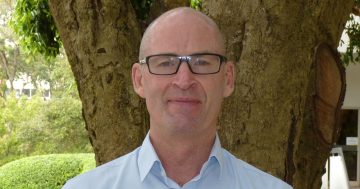
This year, NAPLAN results show there is still much to do to close the gap between the top students and those struggling. Photo: File.
ACT students topped the nation in six categories across all years in this year’s NAPLAN tests, but the results also show that many students are struggling.
NSW, Victoria and the ACT generally fought it out for top spots except in Year 9 Writing, where the Territory was relegated to fourth
The ACT recorded the highest average scores for Year 3 Grammar and Punctuation, Year 5 Reading and Numeracy, Year 7 Reading and Numeracy and Year 9 Spelling.
Territory schools performed better than the national average across all years and domains, with results divided into four categories – Exceeding, Strong, Developing and Needs Additional Support.
Reading was the ACT’s biggest strength, with about a quarter of ACT students in each year considered to be Exceeding, but only 6.5 per cent Exceeding in Year 3 Writing, 8.7 per cent in Year 5 Writing and 8 per cent in Year 9 Numeracy.
Even where the number of Exceeding was high, there remained a significant number who fell into the Needs Additional Support category.
In Year 3 Reading, 9 per cent were considered NAS and 18.5 per cent Developing, while in Grammar and Punctuation 12.3 per cent were NAS and 26.8 per cent Developing.
In Year 7 Numeracy, 9.5 per cent were deemed NAS and 21.9 per cent Developing, and in Grammar and Punctuation it was 10 per cent and 21.8 per cent.
In Year 9 Writing, 9.2 per cent were NAS and 25.8 Developing, and in Grammar and Punctuation, it was 11.5 per cent and 25.9 per cent.
This means that in some cases, one in three students did not meet expectations at the time of testing.
There was little change between this and last year’s results when the testing process was reset.
Education Minister Yvette Berry did not comment on the results, but Opposition Leader Elizabeth Lee said it was disappointing that there was not a significant improvement.
Ms Lee criticised the government for accepting all recommendations from the ACT Literacy and Numeracy Education Expert Panel but only allocating $1.7 million in new funding for the necessary reforms.
“This is grossly inadequate and will not provide our teachers and schools with the necessary tools and resources needed for these significant reforms,” she said.
“The minister has also refused to release a detailed implantation plan, causing more uncertainty for teachers and parents.”
Ms Lee said the minister had ignored expert advice in relation to explicit instruction and failed to implement even the most basic measures, including Year 1 phonic tests, despite the overwhelming evidence.
“Our children have suffered as a result of her inaction,” she said.
Australian Curriculum, Assessment and Reporting Authority (ACARA) CEO Stephen Gniel said that overall, the 2024 results were broadly stable.
Mr Gniel said the results continued to show strong performance from Australian students in literacy and numeracy but also highlighted areas that need improvement.
“The challenges remain with supporting those students identified in the ‘Needs Additional Support’ category and tackling the ongoing educational disparities for students from non-urban areas, First Nations Australian heritage and those with low socio-educational backgrounds,” he said.
Mr Gniel said it was too early to discern any trend, given the change in the reporting system was only last year.
The trends in NAPLAN data are likely to take several years to emerge as they start to show differences from both the immediately preceding year and the base year of 2023,” he said.
Participation was 93.4 per cent, roughly the same as last year.



















